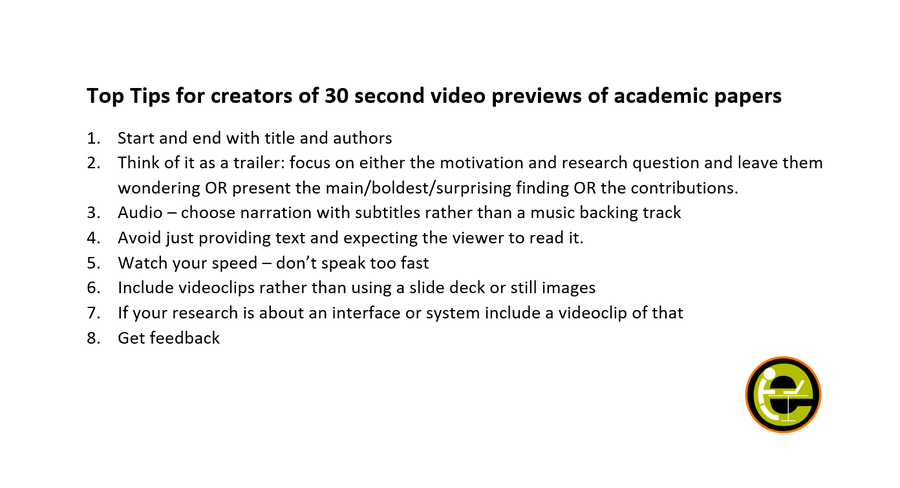Rewards Placement can Determine Engagement in Apps
Our new research paper coauthored with Dr Diego Garaialde and Dr Ben Cowan from UCD, identifies the best location to place rewards when using gamification to motivate users. The research paper, which was published in the International Journal of Human-Computer Studies and is available online on Science Direct (sciencedirect.com), highlighted that placing rewards early on in the user interaction was more effective and encouraged users to use the app more.
Gamification has become a common technique for incentivising users to engage with an application however the placement of this tactic and how it impacts on a user is often not considered during the design process. We found that the value a user places on a reward diminishes the further into the future it is and placing rewards early in the interaction sequence leads to an improvement in the perceived value of that reward.
Speaking about the findings Diego Garaialde said: “Rather than rewarding after longer interactions with the app, which is common in current gamified applications, designers should consider rewarding users early for deciding to interact with the app in the first place.”
The full paper can be found online.
(An earlier version of this post originally appeared on the blog of the ADAPT centre)
Focusing during online lectures
In November 2020, we conducted focus groups with 38 incoming undergraduates. Here, we present the findings from this research – which may be helpful for lecturers seeking to support university students in remote learning.

Camera on or off?
Students missed seeing and being seen by peers and educators. Yet they found keeping a camera on during lectures intrusive. And seeing into the rooms of students who weren’t paying attention was demotivating.

Positive social media use during lectures
Social isolation led to social media use during lectures. Scrolling through feeds provided the stimulation needed to keep students at least partly engaged in the lectures they didn’t enjoy.

Online procrastination got out of hand
Pre-recorded lectures allowed a far more disruptive use of social media: bored students would pause the lecture and stream video content instead.

Technology doesn’t guarantee interaction
Students appreciated chat facilities and online breakout rooms. But when lecturers didn’t respond to questions in chat, or if starting a conversation in a breakout room felt awkward, students would lose motivation to engage in this mode of learning.

What can university lecturers do?
Use online quizzes and live polls! For the students we interviewed, interactivity was useful for helping to avoid distractions, and even more so for maintaining focus on lecture content. They wished that polls and quizzes were more often incorporated into online learning.

This research…
was supported by funding from the Medical Research Council (MR/T046864/1). It was conducted by Year 3 UCL Psychology students Selina He, Eloise May, Simran Suden, and Ella Verrells, supervised by Professor Anna Cox, Dr Anna Rudnicka, Elahi Hossain, and Professor Yvonne Rogers from UCL Interaction Centre.
Funded PhD studentship in HCI: Designing the Teaching Experience for Spreadsheets
Applications are invited for a PhD studentship at the UCL Interaction Centre (UCLIC), funded by an EPSRC/Microsoft iCASE studentship, for up to 4 years, from October 2021. Minimum enhanced stipend of £22,109 per annum, plus fees.
Supervisors: Prof Duncan Brumby, UCL, Dr Advait Sarkar, Microsoft Research, and Prof Anna Cox, UCL.
Spreadsheet applications, such as Excel, are deep and feature-rich software. We want users to learn and understand spreadsheet applications to take full advantage and be empowered by them. An important technique for doing so is ‘in-app teaching’, where we introduce new features and suggest tutorials through pop-up dialogs. However, we do not fully understand the optimal timing and level of information to provide in these dialogs. Nor do we understand how these dialogs participate in the wider learning experience of the user, which may involve consulting documentation, video tutorials, training courses, and help from colleagues.
If we do it right – we create an empowering moment for the user, who learns something new and useful. If we do it wrong (e.g., wrong timing, or wrong level of detail), we create a frustrating and irrelevant distraction that results in decreased user trust and satisfaction.
This PhD would develop a theory of interruptibility and spreadsheet mastery from observational studies and experimentally test one or more design interventions that improve the timing/design of in-app teaching dialogs. Beyond the immediate application of helping us better teach users our newest and best features in spreadsheet applications, like Excel, the results may have profound implications for how we design trustworthy tutorials for all feature-rich software. See more information about the project.
Person Specification
Applicants should be interested in Human-Computer Interaction (HCI), and must possess a strong Bachelor’s (1st or 2:1) or Master’s degree in a related discipline (e.g., Computer Science, HCI, Psychology). The ideal candidate for this project will be a deep analytical thinker who is also equipped with the necessary technical skills to conduct research using one or more of empirical methods (i.e., quantitative experiments conducted in the lab or the field or qualitative observational studies). Good programming skills, experience of software development of interactive applications or analytical models, and relevant previous research experience are also desirable.
Eligibility
To be considered for this scholarship applicants need to be meet the eligibility requirements defined by the UK Research and Innovation (please see linked document)). In particular, any applicants “classed as a home student” would be eligible for funding; applicants “classed as an International student” could be eligible for funding in exceptional circumstances (for example, if a candidate has an outstanding track record of very relevant research, including publications in top-tier venues). Please refer to the linked document for definitions of “home” and “international” student.
Application Procedure
Applicants should submit their applications via UCL Select by 5pm Monday 7 June – please notify Louise Gaynor with your application number when you apply. Applications must include:
- Personal statement (1 – 2 pages).
- Research proposal (1 – 4 pages): a summary of relevant literature to motivate a research question and a description of the type of research to be conducted (including ideas about the methodology and data analysis that could be used).
- Name and email contact details of two referees.
- Academic transcripts.
- CV.
Help with your proposal
Know what kind of contribution you want to make:
Use Seven Research Contributions in HCI by Jacob O. Wobbrock to help you think about what you want to do.
How should you structure your proposal?
The following advice is based on Andrew Derrington’s PIPPIN magic formula for structuring a research proposal.
- Briefly state the PROMISE. What will your programme of research deliver?
- Say why it is IMPORTANT. What gap in the literature does it address? Or which applied problem does it aim to solve?
- State up to 3 sub-PROBLEMS. What are the things you need to find the answer to in order to deliver on your promise?
- Introduce your PROJECT. Briefly say what sort of approach you will take.
- Next decribe how you intend to IMPLEMENT your programme of research. Which methods will you use to find the answer to your 3 sub-problems.
- And finally, say what will happen NEXT. What is the potential impact of your project?
Interviews will take place around 21 June 2021.
For an informal conversation about the project, please contact Prof Duncan Brumby, Dr Advait Sarkar, and Prof Anna Cox. For queries regarding the application process please contact Dr Louise Gaynor.
A Special Interest Group on Designed and Engineered Friction in Interaction
We’re part of a group (Sandy J.J. Gould, Lewis L. Chuang, Ioanna Iacovides, Diego Garaialde, Marta E. Cecchinato, Benjamin R. Cowan, Anna L. Cox) running a special interest group meeting at CHI2021 on the idea of adding ‘friction’ to interactions. Most of the time designers and engineers try to make interactions with technology less effortful. Frictions are about doing the opposite in order to change the way people interact with something.
Overview
Human-computer interactions are implicitly designed to be smooth and efficient. The implicit objective is to enhance performance, improve safety, and promote satisfaction of use. Few designers would intentionally create systems that induce frustration or are inefficient or evendangerous. Nonetheless, optimizing usability can lead to automatic and thoughtless behaviour. In other words, an over-optimization of performance and satisfaction could imply or encourage behaviours that compromises individual users and their communities.
Frictions —changes to an interaction to make it more taxing in some way— are one potential solution to the risks of over-optimisation and over-proceduralisation. The content warnings placed on social media posts on platforms like Facebook and Twitter are an example of a a friction. These frictions have been added in response to particularly ‘risky’ scenarios, where, for instance, widespread misinformation may significantly influence democratic processes. Twitter, for instance, added friction to the process of ‘retweeting’ (i.e., relaying a message to other users) for certain messages. If a user tried to retweet a message containing a link without having opened the link then Twitter would produce an interstitial dialog asking users if they wanted to read the link before retweeting (Andrew Hutchinson 2020).
In the short proposal we submitted, we consider the perspectives of different academic disciplines’ accounts (and usages) of tensions between automatic and deliberate behaviour. We explore the limits on theoretical frameworks that can plausibly describe the mechanism of designed frictions. Following this, we enumerate some effective designs for intentional frictions in human-computer interactions, identify abstract principles from their real-world use, and expand on how they could be generalized for innovations in designed frictions. Finally, we hope to address how current practices for evaluating usability can be modified to consider the potential costs of automatic behaviour and how they could be mitigated with designed frictions.
Open Questions
There a number of open questions about the use of frictions. One of the goals of the SIG is to determine which are most pressing. As we see it, the most important questions about frictions are:
- What kinds of interactional contexts are frictions most suited to?
- What are the most effective ways to get people to switch to a slower, more deliberative way of thinking?
- How quickly do people become habituated to frictions, and how do we manage and/or mitigate the effects of friction habituation?
- Should we be focusing on changing people’s behaviour instead of steering them with frictions?
- How do we calibrate frictions so that they give people space to think, but are not excessively frustrating or negative to user experience?
To find out more go to https://www.sjjg.uk/frictions-sig/
The great remote work experiment – what happens next?

Sam Wordley via Shutterstock
Daniel Merino, The Conversation and Gemma Ware, The Conversation
In this episode of The Conversation Weekly, four experts dissect the impact a year of working from home has had on employees and the companies they work for – and what a more hybrid future might look like. And we talk to a researcher who asked people to sit in bathtubs full of ice-cold water to find out why some of us are able to stand the cold better than others.
For many people who can do their job from home, the pandemic meant a sudden shift from office-based to remote working. But after a year of working from home, some company bosses really don’t want it to become the new normal. The chief executive of Goldman Sachs, David Solomon, called it an “aberration”, and Barclays chief executive Jes Staley said it wasn’t sustainable, because of how hard it is to maintain culture and collaboration with teams working remotely.
Meanwhile, others are fully embracing a remote work future. Twitter said its employees could work from home forever, and Spotify announced a “work from anywhere” policy. Other firms are starting to announce more hybrid policies, where people are expected to split their week between the home and the office: in March, BP told employees they would be expected to work from home two days a week.
In this episode, we talk to researchers who have been studying the shift to remote working during the pandemic about their findings. In France, Marie-Colombe Afota, assistant professor in leadership, IÉSEG School of Management in France, talks us through the initial results of a new study she did in late 2020 of 4,000 employees at a large French multinational. “The more employees felt that the organisation generally values being visible in the office, the more they felt expected to be constantly available while in remote work,” says Afota. “And, in turn, two months later, the less they felt productive and happy in remote work.”
A year of working from home has left some people close to burnout, according to Dave Cook, a PhD researcher in anthropology at University College London who has been interviewing people about their experiences of shifting to remote work during the pandemic. “Burnout and work-life balance is the forgotten public health emergency that’s emerging through throughout this lockdown,” he tells us. And he says that companies should start communicating with their staff now about what the future has in store: “So their employees can get on with planning the rest of their lives.”
For others, the shift to remote work has been a surprisingly good experience. Jean-Nicolas Reyt, an assistant professor at McGill University in Montreal, has been tracking the language that chief executives in North America used to talk about remote working in 2020. “What you see is that actually that misconception, that telework is just not as efficient as co-located work, has vanished for a lot of CEOs,” he tells us. “A lot of CEOs and a lot of employees are saying it was forced, but it’s actually pretty good.”
Ruchi Sinha, a senior lecturer in organisational behaviour and management at the University of South Australia, gives the view from Australia, where hybrid working is already becoming a reality, and where most invitations to a face-to-face meeting now come with a video link too. But Sinha says that opportunities to shift to a fully flexible way of working may be being missed, with companies implementing new policies as rigid as the old ones. “I don’t think we are spending enough time thinking about are we giving people choice to shape their jobs, to shape what they do,” she tells us.
In our second story, we find out that your genes influence how resistant you are to cold temperatures. To test this, scientists asked a group of men to sit in bathtubs full of icy water to measure their reaction – and how much they shivered. Victoria Wyckelsma, a postdoctoral research fellow in muscle physiology at the Karolinska Institutet in Sweden, explains what they found and what it means.
And Sunanda Creagh from The Conversation in Australia gives us some recommended reading about the recent floods in Sydney.
Read more:
‘They lost our receipts three times’: how getting an insurance payout can be a full-time job
The Conversation Weekly is produced by Mend Mariwany and Gemma Ware, with sound design by Eloise Stevens. Our theme music is by Neeta Sarl. You can find us on Twitter @TC_Audio or on Instagram at theconversationdotcom. We’d love to hear what you think of the show too. You can email us on podcast@theconversation.com
A transcript of this episode is available here.
News clips in this episode are from CNN, CNBC News, CBC News, NBC News, Arirang News, World Economic Forum, Goldman Sachs, AlJazeera English, 7 News Australia, Sky News Australia,, Euronews, DW News and Jornal da Record.
You can listen to The Conversation Weekly via any of the apps listed above, our RSS feed, or find out how else to listen here.![]()
Daniel Merino, Assistant Editor: Science, Health, Environment; Co-Host: The Conversation Weekly Podcast, The Conversation and Gemma Ware, Editor and Co-Host, The Conversation Weekly Podcast, The Conversation
This article is republished from The Conversation under a Creative Commons license. Read the original article.
A review of ecological momentary interventions for mental health
The original vision of Ecological Momentary Interventions (EMI) – brief interventions delivered in the moment during daily life – were put forward over a decade ago. In the interim, the arrival of the smartphone has made these interventions far more feasible to deploy. At this point, it is timely to examine whether the original vision of these systems has been realised, and furthermore has the concept of EMI shifted to incorporate further possibilities opened up by these technologies? With Andreas Balaskas and Gavin Doherty, University College Trinity, and Stephen Schueller, University of California, Irvine, our new paper in PLoS ONE examines the components of EMIs in the smartphone era.
You can read more about it in this great blog post written by Andreas
A. Balaskas, S.M. Schueller, A.L. Cox & G. Doherty, Ecological momentary interventions for mental health: A scoping review, PLoS ONE, 16(3): e0248152, 2021. DOI 10.1371/journal.pone.0248152
Tips for crating 30 second videos of academic papers
In today’s lab meeting we reviewed a bunch of 30 second video previews from papers presented at previous @sig_chi conferences. Having listed what worked and what didn’t, we came up with a set of top tips. These were:
- Start and end with a title slide that includes the names of the authors.
- Think of the video as a trailer for the paper rather than something that has to cover all the content of the paper: focus on either the motivation and research question and leave the view wondering what the outcome is, or present the main/boldest/surprisin finding, or the contributions. But don’t try to do all of that in 30 seconds!
- Audio – choose narration with subtitles rather than only having a music backing track.
- Avoid just providing text on the screen and expecting the viewer to read it – not everyone can read at the same speed.
- Watch your speed – don’t speak too fast.
- Include video clips rather than only using a slide deck or still images. You can find creative commons video clips if you search for them.
- If your research is about an interface or system, include a videoclip of it.
- Get feedback on your video before publishing it

We shared our tips on twitter which many people seemed to appreciate. Mark Warner responded to say that I’d previously given him the advice to include a videoclip of the system he was recording when I had seen him practice a talk he was giving at CHI2019 and that he had found this useful.

Media interview: Deutsche Welle TV News
Dr Marta Cecchinato was interviewed by Deutsche Welle TV News , Germany’s international broadcaster on their show ‘The Day’ about our work on work-life balance during the pandemic.
Media interview: ‘If you switch off, people think you’re lazy’: demands grow for a right to disconnect from work
Prof Anna L Cox is quoted in The Guardian’s article ‘If you switch off, people think you’re lazy’: demands grow for a right to disconnect from work
Anna Cox achieves UK Council for Graduate Education recognition for excellence in PhD supervision
Prof Anna L Cox has been recognised by the UK Council for Graduate Education for excellence in research supervision practice.
You have produced a very rich submission, bristling with innovations and useful interventions that you have developed over many years as a research supervisor. You clearly enjoy supervision and have invested significantly in both your practice and your many students. We found your approach to developing employability to be a particularly rich mix of skills development and experiential opportunities. Your mature and considered approach to selecting examiners also stands out.
Examiner’s feedback


